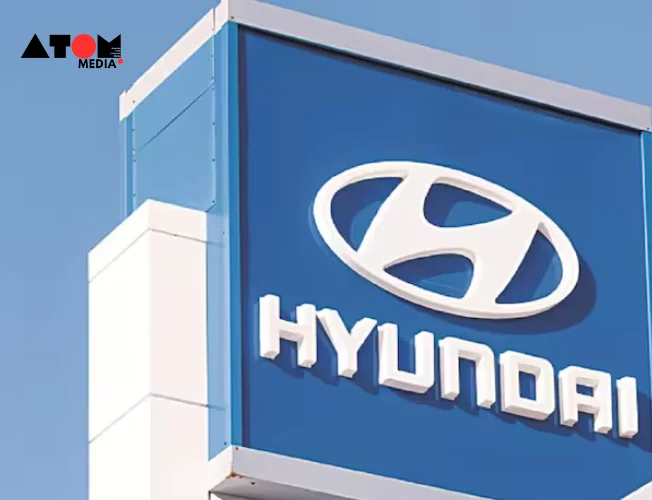Hyundai Motor India, a major player in the Indian automotive sector, has taken a crucial step toward going public by registering for an initial public offering (IPO) worth around $3 billion. This is a significant move because it will be the first time in two decades that an Indian automaker has gone public, the last being Maruti Suzuki in 2003.
A Landmark IPO
On June 15, 2024, Hyundai Motor India applied for regulatory approval to list on the Mumbai stock exchange. This IPO is expected to be the largest in India’s history, with Hyundai Motor, the South Korean parent company, selling up to 17.5% of its stake in the wholly-owned Indian subsidiary. The IPO will not issue new shares, but will adopt the “offer for sale” method, in which existing shares held by the parent firm are sold to retail and other investors.
Financial and Strategic Details
The draft prospectus issued by Hyundai Motor India did not provide detailed information on the IPO’s pricing or the company’s total worth. According to Reuters, Hyundai plans to raise between $2.5 billion and $3 billion. This appraisal could put the company’s value at up to $30 billion.
Market Impact and Investor Interest
Hyundai Motor India’s IPO occurs at a time when Indian stock markets are nearing record highs, creating a favorable atmosphere for significant investor interest. The company’s plan to list on the stock exchange is likely to increase its visibility and brand image dramatically. Furthermore, it will give liquidity and a public market for its stock, which may be critical for future financing efforts.
Hyundai Motor India’s Market Position
Hyundai Motor India is the country’s second-largest car manufacturer, following Maruti Suzuki. The company has established a strong foothold in the Indian automotive market, known for its wide range of popular models that cater to various segments of consumers. The IPO is seen as a strategic move to strengthen Hyundai Motor India’s position against its competitors, including Maruti Suzuki and Tata Motors.
Benefits of the IPO
Listing on the stock exchange is anticipated to put Hyundai Motor India in a more favorable position compared to its rivals. One of the primary advantages is the potential for easier future fundraising without heavy reliance on its Korean parent company. By becoming a publicly traded entity, Hyundai Motor India can attract a diverse group of investors, including retail investors, institutional investors, and foreign investors, thereby broadening its financial base.
Historical Context
The decision to go public marks a significant milestone for Hyundai Motor India, coming two decades after the last IPO by an Indian car manufacturer. In 2003, Maruti Suzuki, then known as Maruti Udyog Limited, went public, setting a precedent in the automotive industry. Since then, no other Indian carmaker has ventured into the public market, making Hyundai’s move a historic and noteworthy event.
The “Offer for Sale” Route
The “offer for sale” (OFS) route chosen by Hyundai involves the South Korean parent selling part of its existing stake rather than issuing new shares. This approach has several advantages, including avoiding dilution of existing shareholders’ equity and providing a clear path for the parent company to monetize its investment. The prospectus mentions that South Korea’s Hyundai will sell up to 142 million of the total 812 million shares, or 17.5%, although the final percentage could be lower.
Strategic Vision and Future Plans
In the draft prospectus, Hyundai Motor India articulated its strategic vision for the IPO. The company stated that the listing of its equity shares would significantly enhance its visibility and brand image. It also emphasized the benefits of having a public market for its shares, which includes providing liquidity to shareholders and enabling easier access to capital for future growth initiatives.
Enhancing Visibility and Brand Image
By becoming a publicly traded company, Hyundai Motor India expects to gain greater visibility in the market. This enhanced visibility can strengthen its brand image, making it more attractive to consumers and investors alike. A strong brand image is crucial in the highly competitive automotive market, where consumer perception can significantly influence purchasing decisions.
Providing Liquidity and Access to Capital
The IPO will create a liquid market for Hyundai Motor India’s shares, benefiting both existing and potential shareholders. Liquidity is a key factor for investors, as it provides the ability to buy and sell shares easily. Additionally, being a publicly traded company can facilitate access to capital markets for future fundraising. This can be particularly advantageous for financing expansion plans, research and development, and other strategic initiatives.
Market Dynamics and Competitive Landscape
Hyundai Motor India operates in a highly competitive market, with significant players such as Maruti Suzuki and Tata Motors. The IPO is expected to bolster Hyundai’s competitive position by providing the financial flexibility needed to respond to market dynamics effectively.
Competitive Advantages
Hyundai Motor India’s comprehensive product portfolio, strong distribution network, and commitment to innovation give it a competitive edge. The additional capital raised through the IPO can further strengthen these advantages, enabling the company to invest in new technologies, expand its product range, and enhance its service offerings.
Industry Implications
The success of Hyundai Motor India’s IPO could have far-reaching consequences for the Indian automobile industry. It may encourage other automakers to consider going public, boosting the industry’s overall vitality and competitiveness. A successful IPO can also enhance investor trust in the industry, perhaps luring further investment into India’s automotive market.
Hyundai Motor India’s filing for an IPO to raise up to $3 billion marks a watershed moment in the Indian automotive industry. This action not only strengthens Hyundai’s market position, but also represents a significant step toward increased financial flexibility and market visibility. By taking the “offer for sale” path, Hyundai Motor India hopes to exploit its strong market position and attract a diverse range of investors, laying the groundwork for future growth and innovation.
The IPO is expected to enhance Hyundai’s brand image, provide liquidity, and create a public market for its shares, offering substantial benefits to both the company and its investors. As Indian stock markets continue to trade near record highs, Hyundai Motor India’s IPO could set a new benchmark for the industry, paving the way for future public offerings by other car manufacturers.
Read more: Marketing News, Advertising News, PR and Finance News, Digital News





